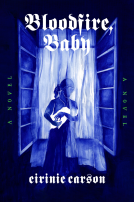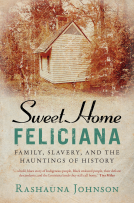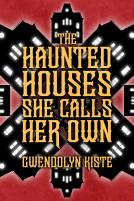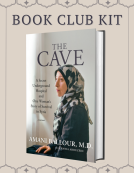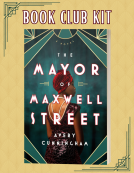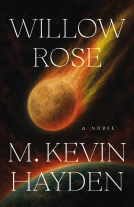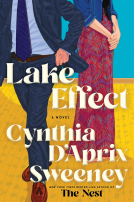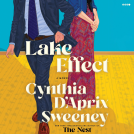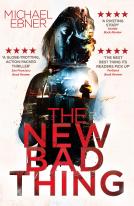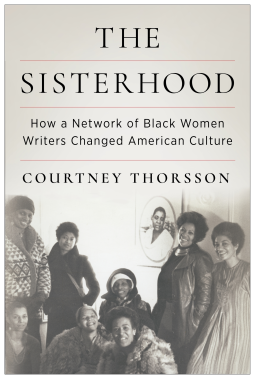
The Sisterhood
How a Network of Black Women Writers Changed American Culture
by Courtney Thorsson
This title was previously available on NetGalley and is now archived.
Send NetGalley books directly to your Kindle or Kindle app
1
To read on a Kindle or Kindle app, please add kindle@netgalley.com as an approved email address to receive files in your Amazon account. Click here for step-by-step instructions.
2
Also find your Kindle email address within your Amazon account, and enter it here.
Pub Date Nov 07 2023 | Archive Date Feb 07 2024
Talking about this book? Use #TheSisterhood #NetGalley. More hashtag tips!
Description
Honorable Mention, 2024 William Sanders Scarborough Prize, Modern Language Association
One Sunday afternoon in February 1977, Toni Morrison, Alice Walker, Ntozake Shange, and several other Black women writers met at June Jordan’s Brooklyn apartment to eat gumbo, drink champagne, and talk about their work. Calling themselves “The Sisterhood,” the group—which also came to include Audre Lorde, Paule Marshall, Margo Jefferson, and others—would get together once a month over the next two years, creating a vital space for Black women to discuss literature and liberation.
The Sisterhood tells the story of how this remarkable community transformed American writing and cultural institutions. Drawing on original interviews with Sisterhood members as well as correspondence, meeting minutes, and readings of their works, Courtney Thorsson explores the group’s everyday collaboration and profound legacy. The Sisterhood advocated for Black women writers at trade publishers and magazines such as Random House, Ms., and Essence, and eventually in academic departments as well—often in the face of sexist, racist, and homophobic backlash. Thorsson traces the personal, professional, and political ties that brought the group together as well as the reasons for its dissolution. She considers the popular and critical success of Sisterhood members in the 1980s, the uneasy absorption of Black feminism into the academy, and how younger writers built on the foundations the group laid. Highlighting the organizing, networking, and community building that nurtured Black women’s writing, this book demonstrates that The Sisterhood offers an enduring model for Black feminist collaboration.
Advance Praise
"Starting with a photograph, Courtney Thorsson brings her all to this luminous work about The Sisterhood, a group of Black women writers who met informally in the 1970s. Together they transformed American literature and helped to shape generations of writers, visual artists, filmmakers, and scholars. This is a profoundly important story and it has found an astute and sensitive author in Thorsson."
—Farah Jasmine Griffin, author of In Search of a Beautiful Freedom: New and Selected Essays
"Proceeding from an archive of one iconic photograph of The Sisterhood, 1977, Courtney Thorsson has pieced together the story of how Black women writers, in intimate and collaborative gatherings throughout New York in the 1970s, created literary history. It is an indispensable, fascinating and original history and one that might have been lost without Thorsson’s loving and meticulous archival work."
—Mary Helen Washington, author of The Other Blacklist: The African American Literary and Cultural Left of the 1950s
Available Editions
| EDITION | Other Format |
| ISBN | 9780231204729 |
| PRICE | $32.95 (USD) |
Available on NetGalley
Average rating from 16 members
Featured Reviews
 E W P, Reviewer
E W P, Reviewer
The Sisterhood re-introduces Black women writers whose role and work are not as well-known as it should be and provides a fuller understanding of some many of us assume we know well, Toni Morrison and Alice Walker in particular. The affiliation of the women in the “the Sisterhood,” a group of Black women writers and intellectuals who gathered in NYC in the 1970s—a short-lived collective in the formal sense, an enduring one in its influence—is the starting point of the book, but the account is wide-ranging, engaging, and informative. Some of the women—most notably Morrison and Walker—are assumed today to be part of the pantheon; this book illuminates their path to that status, how the women in the Sisterhood stepped in to help one another and promote one another, and how they also reached back to recover the displaced work of those who had gone before, such as Zora Neal Hurston. We take for granted today access to the work of Hurston and that her work is important. It is hard to appreciate both the fact that it had to be recovered and how difficult and labor-intensive the recovery was—from locating physical copies of long out-of-print books pre-internet, to standing at the copier to reproduce the books so students could read them for class, to facing questions about the work as part of a course syllabus. The book highlights the deeply uncomfortable, if not hostile, environment many of the women experienced in the academy—as the only Black faculty member in their department or one of very few at their institutions. The atmosphere was not much better in white-dominated feminist organizations, such as Ms. Magazine, or in the Civil Rights movement, where important women were relegated to behind-the-scenes roles or simply not recognized for their leadership. In that context, the community of the Sisterhood was essential. Thorsson’s admiration for three women is evident, as is her gratitude that several of them saved their papers and deposited them in accessible archives that she mined for this book. In doing so, she has performed a great service.
 Anita S, Librarian
Anita S, Librarian
The Sisterhood is a title that focuses on a gathering of Black female writers, namely Vertamae Grosvenor, Alice Walker, Lori Sharpe, Toni Morrison, June Jordan, Nana Maynard, Ntozake Shange, and Audreen Ballard Box. The author acknowledges in her introduction that this photo from 1977 has a life of its own and is legendary. The book is about as much of archives as living memory as it is of how this image has circulated on social media and made such an empowering impression on Black viewers who are themselves scholars, activists, readers, and more.
People have always wondered well, what went on in the context of that photo? What happened at that get together? How did the women know one another? These questions are what the book attempts to tackle. She talks of meetings that these women had, and of the threats of heightened violence they faced meeting in city apartments. “Outside the group, they faced daily encounters with racism, misogyny, and homophobia.” And despite their unity and friendships, the women also navigated ‘dissent’ among members from time to time, which eventually led to the breakup of the Sisterhood after 2 years. “In those two years, however,” as the author is quick to point out, “theese women made Black feminist writing central to magazines and trade publishing and they laid the foundation for Black feminism in the academy.”
The author does a very comprehensive job of chronicling the social context of what was happening at the time the Sisterhood was forming. There’s also a discussion of writers Audre Lorde and Alexis De Veaux who were part of a community of women writers in Brooklyn who publicly identified as out lesbians. The homophobic backlash to their work was nastier than what other Black women writers faced.
Overall, the book is an essential window into the works and lives of these Black female writers and the impact they’ve had culturally as well as the problems they faced.
Also notable is the collection of photographs that the volume contains, which will also be of great interest to readers.
In terms of scope, the book is definitely very academic. The language is straightforward and doesn’t go into long descriptions of things that would bore or confuse lay readers who are not academics. However, the most appropriate context for the book is in academic circles with issues of scope that it covers and who it will appeal most to.
I'm not sure how I feel about a white woman (or someone who appears to be a white woman) of Western European descent writing a book like this and specializing in Black American literature. The author's bio states that she uses "Black feminist methods." I think about other cases of white women taking up positions and mantles that Black scholars are not even considered for in many cases, and I don't want to lob unjust accusations here or to insult the author in any way. She clearly has done a great job and is a subject expert. Just something that occurred to me as I was reading. And to be very clear, I'm not arguing that only Black women or Black scholars are "allowed" to write about Black literature. It's just one of those times where I was surprised or expected a co-author or something else given the literary titans, this legendary group of Black women.
The Sisterhood tells the story of how some of the best Black Women writers got together in 1977 to talk about writing and life and how together they made an impact on our culture and on publishing. The group includes Toni Morrison and Alice Walker and eventually includes Audre Lorde--some of the leading voices of their time. This book is well-sourced, very credible and interesting. Thanks to NetGalley and the publisher for an advance copy of this book in exchange for an honest review.
This book was full of info I had no clue about. I was curious about this group of Black women writers and came across a wealth of knowledge. It was a well written, well researched book that I’m thoroughly glad I had a chance to read. This is definitely the book to check out if you want to learn more about black female writers and the world they helped shape.
Thanks to NetGalley and the Publisher for the arc.
⭐️⭐️⭐️⭐️💫
The Sisterhood: How A Network Of Black Women Writers Changed American Culture by Courtney Thorsson begins with a legendary picture of a group of Black women writers, scholars, feminists and activists who believed in the power of literature as an agent of political and social transformation, and dared to challenge white male capitalism and colonial institutions. The Sisterhood was composed of some of the brightest minds of the time: Toni Morrison, Alice Walker, Vertamae Grosvenor, Lori Sharpe, June Jordan, Nana Maynard, Ntozake Shange, and Audreen Ballard. In the two short years that they met, February 6, 1977 to February 1979, they helped recover the displaced works of Black women writers such as Zora Neal Hurston and Nella Larson, and aided in the establishment of Black studies and African American literary studies in academia. In the years that followed, they wrote books that defined the 1980s as a prodigious decade for Black women writers in the United States. A second Renaissance, a kin to the Harlem Renaissance led by Black male authors in the 1920s.
The Sisterhood is a scholarly work examining the cultural impact this group of female activists had during their time and changed American culture as the title states. Thorsson relied on both primary and secondary sources such as membersʼ meeting minutes, correspondence, journals, poetry, fiction, essays, biographies, and interviews to uncover and chronicle the everyday work of The Sisterhood. I thoroughly enjoyed the references to cultural, artistic and political happenings during this era. I was particularly captivated by the discourse illuminating the differences between the Black and White feminist agendas, and challenges faced within and outside the group related to homosexuality.
I am glad I read The Sisterhood as I feel I am much better informed about this influential group of Black women writers. It is unimaginable to think of the American literary cannon without the works of Toni Morrison, Alice Walker, or the recovered works of Zora Neal Hurston or Nella Larson. Yet, without the countercultural actions of The Sisterhood and their determination to change White Academia and White publishing houses, these literary masterpieces would not exist.
Many thanks to the author @courtneythorsson, @columbiauniversitypress, and @NetGalley for the gift of an advanced digital copy in exchange for an honest review.
 Lily A, Reviewer
Lily A, Reviewer
In this fascinating book about the Sisterhood, readers learn all about a group of great Black feminist female authors from the late twentieth century. Including names like Toni Morrison, Audre Lorde, and Alice Walker, readers learn about the influence that this particular group of women has had on Black feminist scholarship and Black literature by and for women. Courtney Thorsson draws on existing scholarship, correspondence, and interviews with members of the Sisterhood to explore the scope of their meetings and their influences on changes to various social institutes. Many of these women went on to publish books or work in academia, where they continued to change and challenge social institutions through their discussions of literature and Black feminist thought. Thorsson, beyond looking into the successes and platforms of the Sisterhood, also explores the dissolution of the group and their organizational and community building successors in the decades after. By highlighting the large-scale social contributions of these women, Thorsson brings a critical part of Black studies and gender studies to life, emphasizing these connections and the larger significance of this body of intersectional work and theory. This excellent deep dive into Black feminist scholarship is a great introduction to the topic or a great companion piece to the work done by these incredible women.
Readers who liked this book also liked:
We Are Bookish
Biographies & Memoirs, Health, Mind & Body, Nonfiction (Adult)
We Are Bookish
Historical Fiction, Literary Fiction, Multicultural Interest
